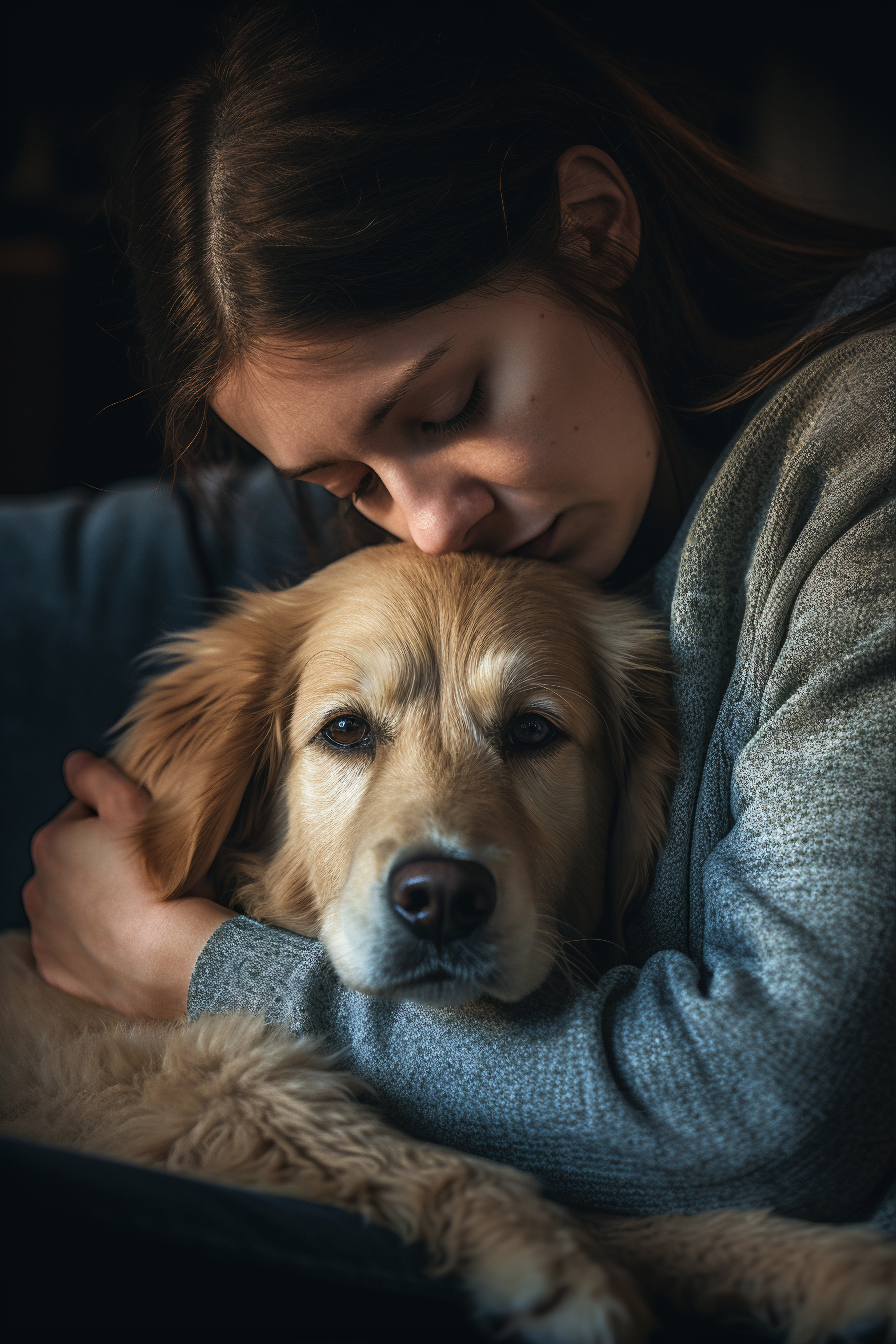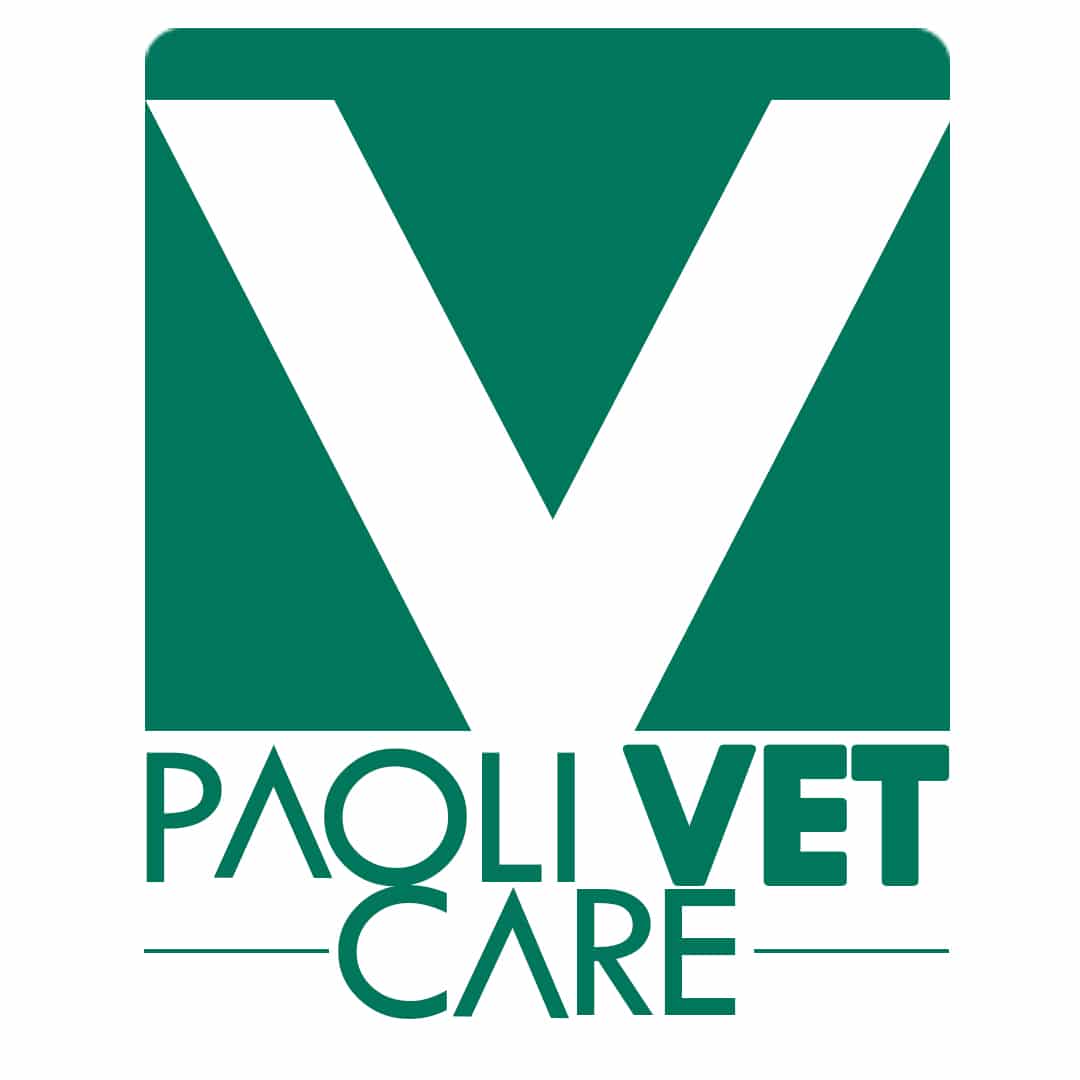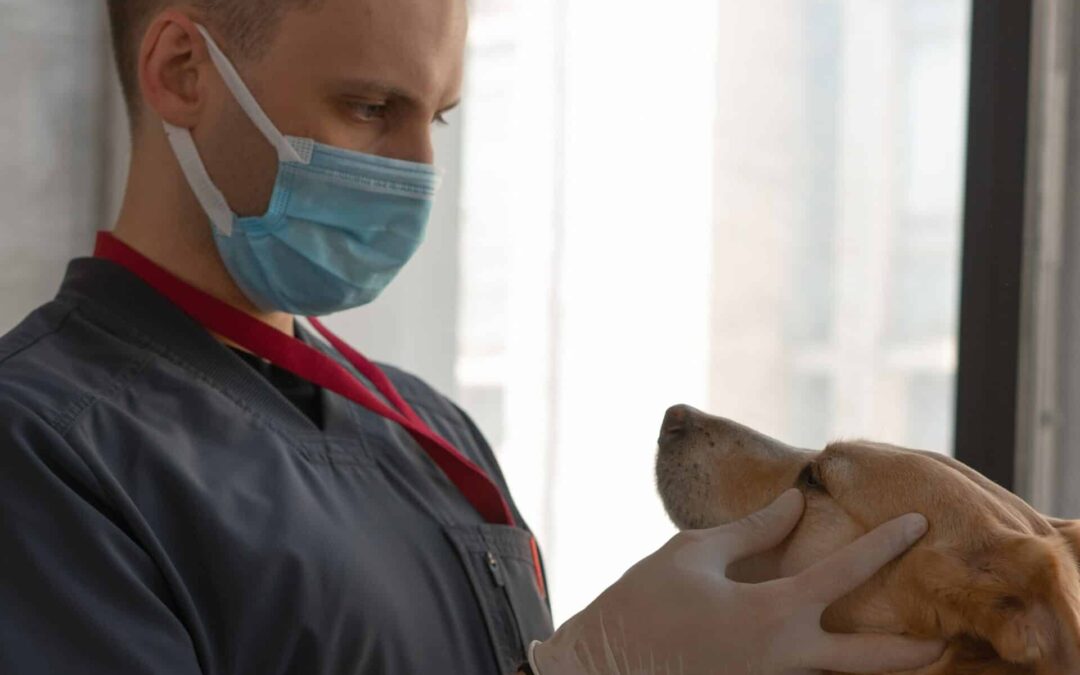There is no worse feeling as a pet owner than knowing your furry friend has accidentally ingested something they shouldn’t have, especially if it’s poisonous. Many common household items are very dangerous for dogs, such as chocolate candy or cleaning supplies. When you walk into a room and see the scattered evidence of your pet’s misdeeds, it’s easy to fly into a panic.
Perhaps the situation is even worse: your normally healthy dug is suddenly showing concerning symptoms, and no matter what you do their condition grows worse. You know they ate something toxic but have no idea what it could be. You must call your local veterinarian or emergency vet ASAP, so that the experts can give your animal the treatment they need.
How do you handle pet poisoning? What information should you gather for the veterinarian? Do you know where to take your pet when they ingest something poisonous? We answer these crucial questions so that you know exactly what to do in this alarming situation.
Signs of Poisoning
Table of Contents
Abnormal behaviors, dog vomiting, and other signs of poison should be noted and handled with utmost seriousness.
There are a few key signs that will let you know if your dog has been poisoned:
- Immediate loss of appetite.
- Sudden lethargy.
- Vomiting, especially signs of blood.
- Jaundice (evidence of yellow discoloration around the gums, nostrils, genitals, and skin).
- Blood in their stool.
How Paoli Vetcare Can Help?
Every pet owner does their best to keep their animal safe, but sometimes things happen. You cannot watch over your pet 24/7, and sometimes they get into things they shouldn’t. There might be a toxic plant in your home you weren’t aware of, or you casually tossed something in the garbage that your pet found later. Many common household items are very dangerous for pets, including cleaning solutions and outdoor chemicals.
If you believe your pet has ingested a poisonous substance, call Paoli Vetcare right away. We will connect you with one of our poison experts who will walk you through exactly what you need to do in the situation. Our expert veterinarians will assess the circumstances and determine what crucial actions need to be taken.
Our veterinarians can also give you precautionary advice, such as what household items might poison your cat or dog. We have experience with cases involving pesticides, plants, medications, snacks, and other potentially hazardous items that you should consider removing from your home.
In the case of an extreme emergency, we will tell you exactly where you need to take your pet, whether it’s bringing them to us or taking them to an emergency animal hospital. We will work with you to remain consistently updated through the entire process, and with your pet’s medical history on hand, we can advise the key steps that need to be taken to ensure your pet’s health.
Most Common Toxins
Common household toxins include:
- Prescription and over-the-counter medications.
- Household cleaners (bathroom and kitchen sprays and solutions).
- Human food (Onions, garlic, raisins, grapes, chocolate).
- Pest poisons.
- Toxic plants (your veterinarian will have a list).
- Lawn and garden pesticides and products.
If you believe your pet has ingested something poisonous or toxic, you can call the Animal Poison Control Center at 1-888-426-4435.
Tips to Prevent a Poison Emergency
Here are a few tips to help prevent a pet poison emergency:
- Don’t leave medications in spots of easy reach, such as nightstands and countertops.
- Remove toxic plants from your home and yard.
- Don’t leave items out when doing home improvement projects.
- Store your everyday household chemicals and cleaning items safely.
- Handle pet food and treats safely.
- Keep problematic foods away, such as grapes, onions, desserts, and Xylitol sweeteners.
- Avoid leaving chocolate in places your pet can reach it.
- Supervise your pet when they are outside around food, such as at cookouts.
- Be careful using and storing insecticides.
- Avoid using rodenticides, as your pets can also find bait attractive.
- Secure your garbage cans and recycling.
Pet Poison Emergency Checklist
In any pet poison emergency, do not panic. As the pet owner, you are the one in the most control of the situation, and your anxiety and fear will only inhibit your ability to act. If you believe your pet has been poisoned, collect any of the material they may have ingested into a container (this includes anything they chewed and any remains of vomit). Whatever material you provide your veterinarian will help them determine what poisons were consumed.
When you contact your local veterinarian, you should be ready to provide the following information about your pet:
- Age
- Breed
- Species
- Weight
- Sex
- Observed Symptoms
- Exposed Agents
- Amount of Agent Consumed
- Time Since Exposure
If your pet is losing consciousness, having difficulty breathing, or having seizures, take them to a local veterinarian or emergency vet clinic right away.
Animal Poison Control Center Hotline
Paoli Vetcare’s Emergency Vet Team is specifically trained and equipped to handle an animal poison situation. Call first if you can, and bring as much information with you as possible. We will help guide you and prepare for your visit so we can best assist your pet and provide the highest level of care.
If you have a pet emergency that isn’t life-threatening, you can book through urgent care or give us a call. Remember, if you believe that your pet has been poisoned, time is of the essence.

If your pet is experiencing any of the following, call a vet immediately:
- Animal attacks
- Bleeding
- Collapse episodes
- Difficulty breathing
- Difficulty urinating
- Hit-by-car incidents
- Ingestion of medications, poisons, or objects
- Seizure
- Severe diarrhea
- Unresponsiveness
- Repeated vomiting
If you suspect poisoning — even if your pet seems normal — call the ASPCA Animal Poison Control Center immediately at 888-426-4435. The ASPCA will give you advice and a specific case number that your vet can use to consult with a toxicology specialist. This is an invaluable resource.
What to Do in Case of Animal Poisoning
If you suspect your pet has ingested something poisonous, get the agent away from them ASAP. Wash off their snout and fur to remove the poison or agent. Rinse out their mouth if you can do so safely, and take their food dish away. Don’t induce vomiting unless instructed by your veterinarian, but keep a bottle of hydrogen peroxide on hand.
Poison control centers can provide you with basic information about animal toxicology. When you call your poison control center, the poison specialist might defer you to a fee-for-service hotline if the poisoning is beyond their expertise. Contact your local veterinarian ASAP. Your vet might refer you to the ASPCA Animal Poison Control Hotline at 1-888-426-4435.
Signs of Pet Poisoning:
- Extreme lethargy.
- Erratic or abnormal behaviors.
- Vomiting or excess drooling.
- Convulsions, shaking, and seizures.
- Swelling around the mouth or tongue.
- Diarrhea.
- Blood in their stool.
Always keep your veterinarian’s number and the ASPCA Poison Control number on hand in case of a poisoning emergency. If pet poisoning does occur, keep your cool, follow the correct steps, and stay in contact with your veterinarian.





